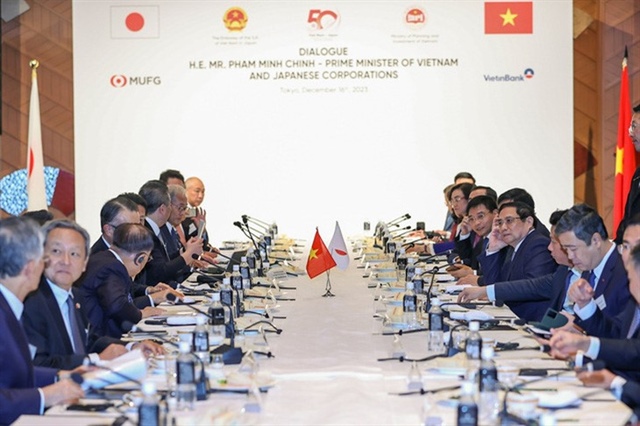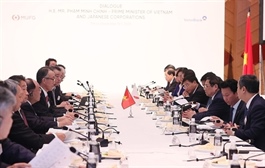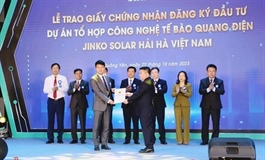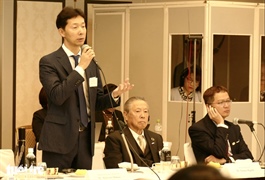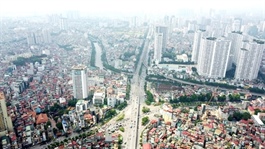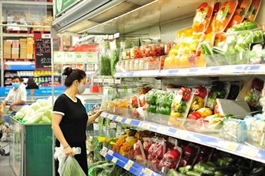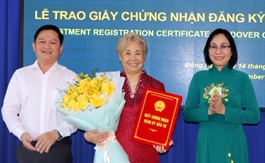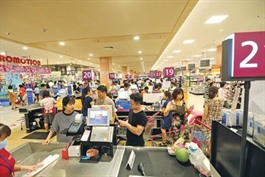Why is Vietnam a 'safe shelter' amid global uncertainties?
Why is Vietnam a 'safe shelter' amid global uncertainties?
While the global economy is on the verge of facing a crisis, Vietnam continues to be evaluated as having a promising growth outlook. That is why Vietnamese Prime Minister Pham Minh Chinh said Vietnam is a safe destination for foreign investors amid global uncertainties.
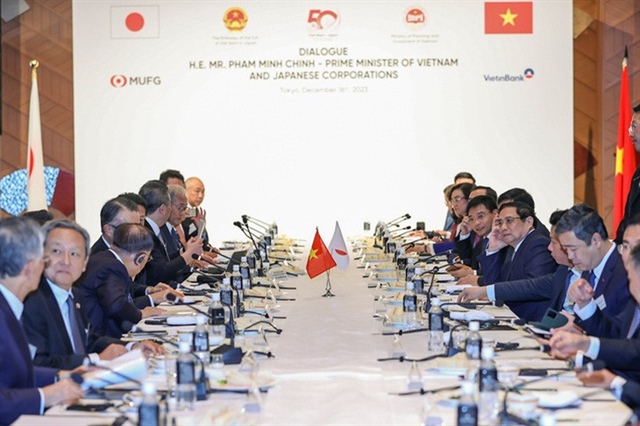
Vietnamese Prime Minister Pham Minh Chinh meets with representatives of leading Japanese enterprises operating in Vietnam on December 16, 2023, affirming that Vietnam is a safe shelter for foreign investors amid global uncertainties. Photo: Vietnam Government Portal |
According to the Vietnamese Ministry of Foreign Affairs, the global economy, despite showing more positive signs, is still facing many risks and a gloomy growth outlook.
The economic growth rate was forecast at 1.5 percent in the U.S., 4.5 percent in China, 1.2 percent in Japan, and 0.6-0.9 percent in European Union countries this year.
However, many international organizations have made positive forecasts about Vietnam’s growth.
In particular, the International Monetary Fund projected Vietnam’s economic growth at 5.8 percent for the upcoming year, positioning the Southeast Asian country at the 20th spot globally in terms of growth pace among economies.
American credit rating agency Fitch Ratings forecast the country’s GDP to expand 6.3 percent in 2024 and seven percent in 2025.
A resolution issued by a regular cabinet meeting in November highlighted that the local economy has regained its growth momentum, particularly in the industrial sector.
The country’s state budget revenue in the January-November period reached 94.9 percent of its full-year target.
Its exports and imports increased 6.7 and 5.1 percent, respectively, and Vietnam recorded a trade surplus of US$25.83 billion in the 11-month period.
Vietnam also attracted nearly $28.85 billion in foreign investment.
In the midst of global volatility, Vietnam has managed to sustain economic growth and maintain a stable macroeconomy. Dr. Tran Dinh Thien, former director of the Vietnam Institute of Economics, said while commenting that the country has adeptly adapted to the fluctuations in the global economy.
A recent survey by the Japan External Trade Organization showed that Vietnam was the most promising destination for business development in ASEAN.
More than 60 percent of the Japanese firms operating in Vietnam had plans to expand their operations here in the next two years.
Notably, the nation ranks 75th out of the 134 countries on the 2023 Global Talent Competitiveness Index, above Thailand, Indonesia, and the Philippines.
|
|
| Nvidia's CEO Jensen Huang (R, 4th) poses for a photo with representatives of Vietnamese ministries and enterprises. Photo: Vietnamese Ministry of Planning and Investment |
As a result, Vietnam is one of the safest shelters for foreign investors.
Vietnam has every opportunity to become one of the leading countries in terms of sustainable development in the Southeast Asian region, according to Savills World Research.
Up to 85 percent of its fastest-growing companies have applied the Environmental, Social, and Governance (ESG) model.
Nguyen Sy Dung, former vide-chairman of the National Assembly Office, expressed to Tuoi Tre (Youth) newspaper his high regard for the role of the prime minister in prioritizing sectors and outlining the focus of development.
“The government has done its utmost, and the prime minister has proactively worked day and night. However, obstacles are plentiful, so determining priority sectors is an appropriate way,” Dung added.
The focus on traffic infrastructure, technology development, digital transformation, and sustainable development will help the local economy get new driving forces.
However, Vietnam needs to clear policy bottlenecks as myriad procedures are time-consuming.
It should also issue policies to protect enterprising officials, thereby fostering an environment conducive to innovation.
Thien shared the view, saying that the Vietnamese economy is encountering many issues, such as slow public investment disbursement and a high number of enterprises withdrawing from the market.


